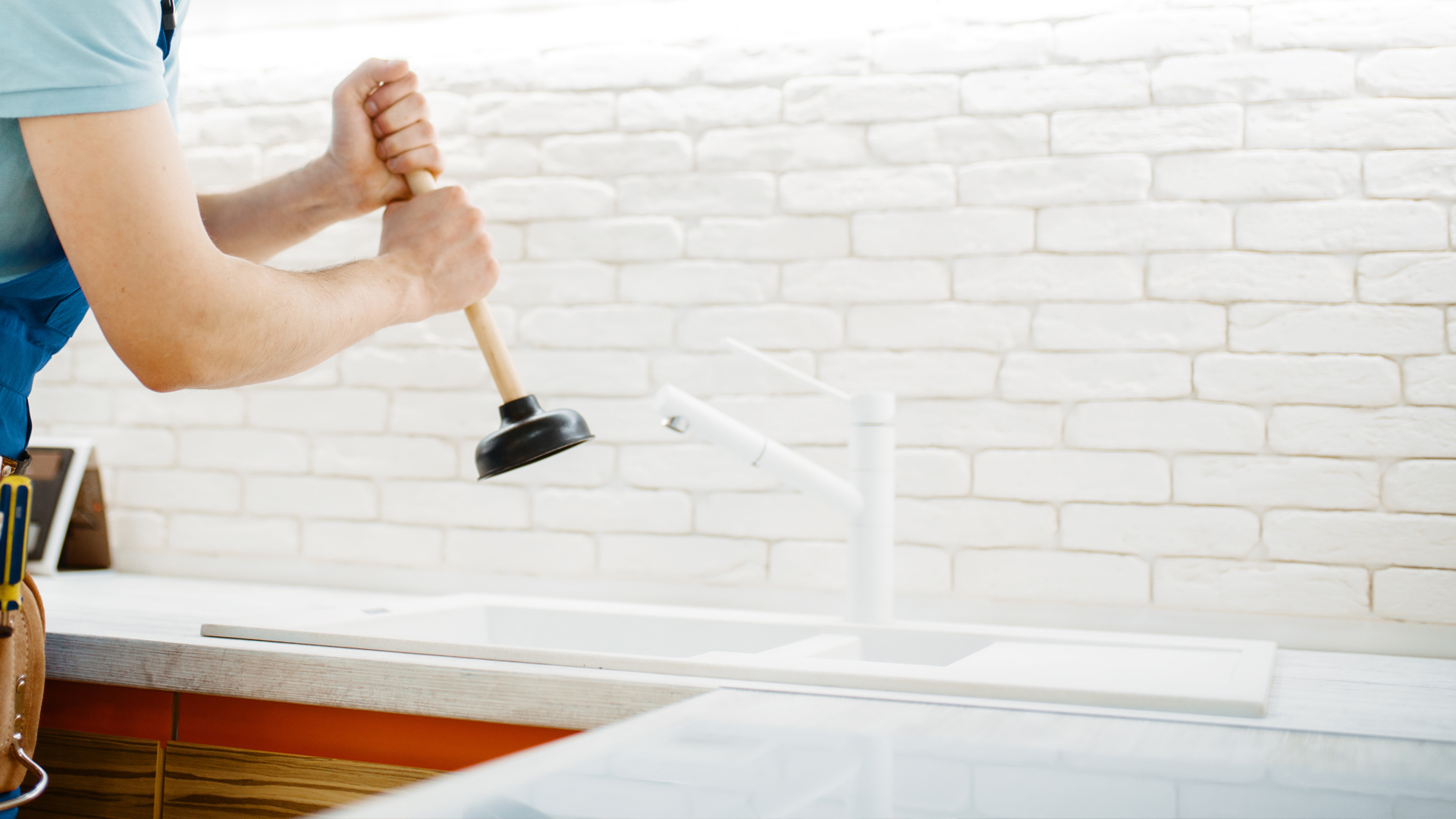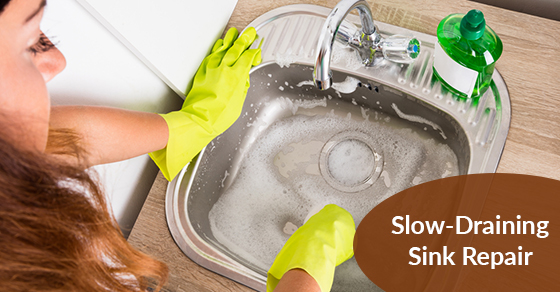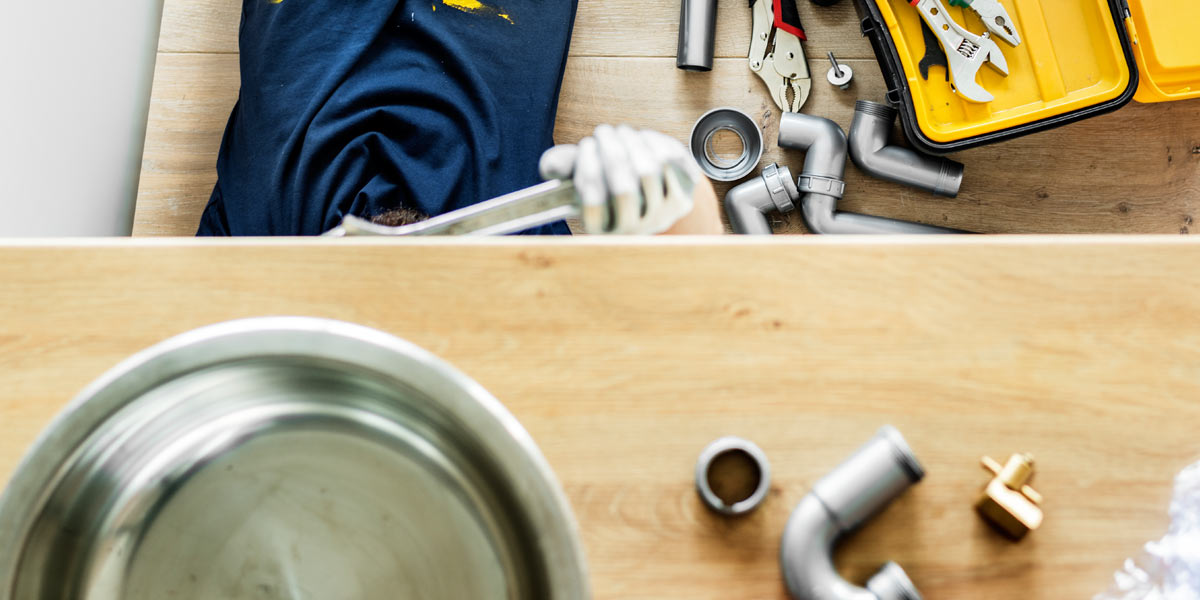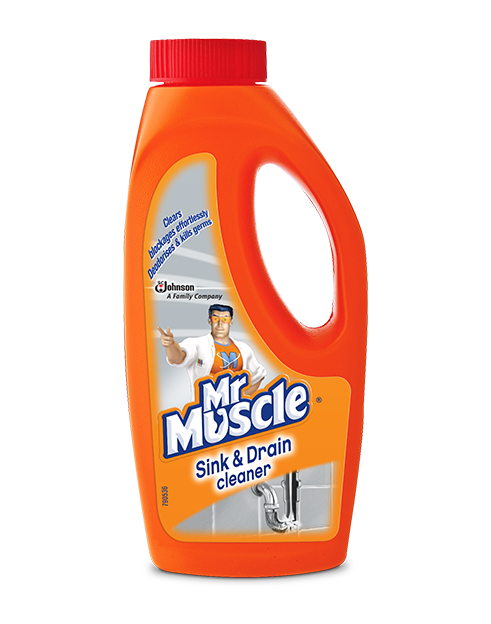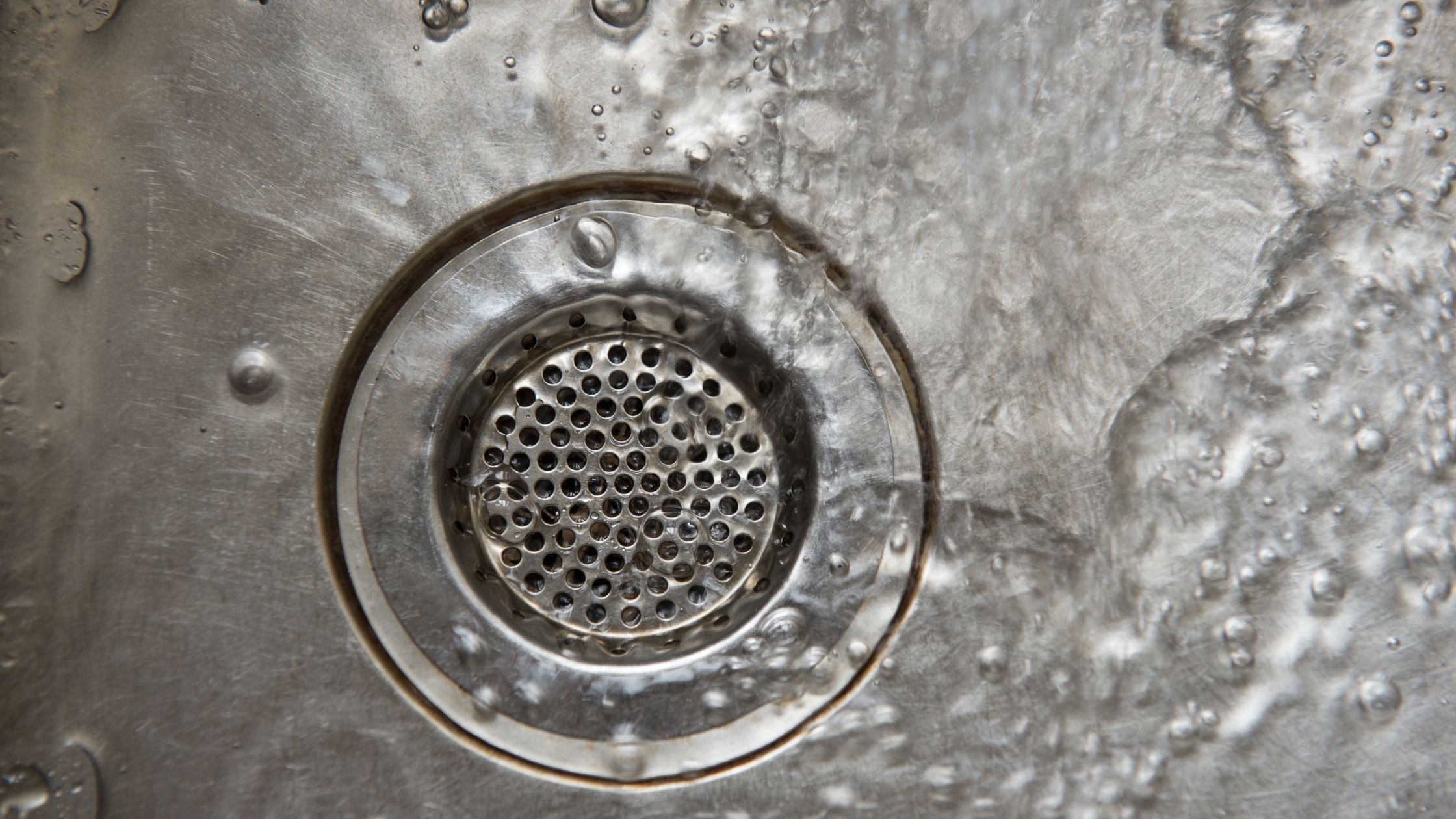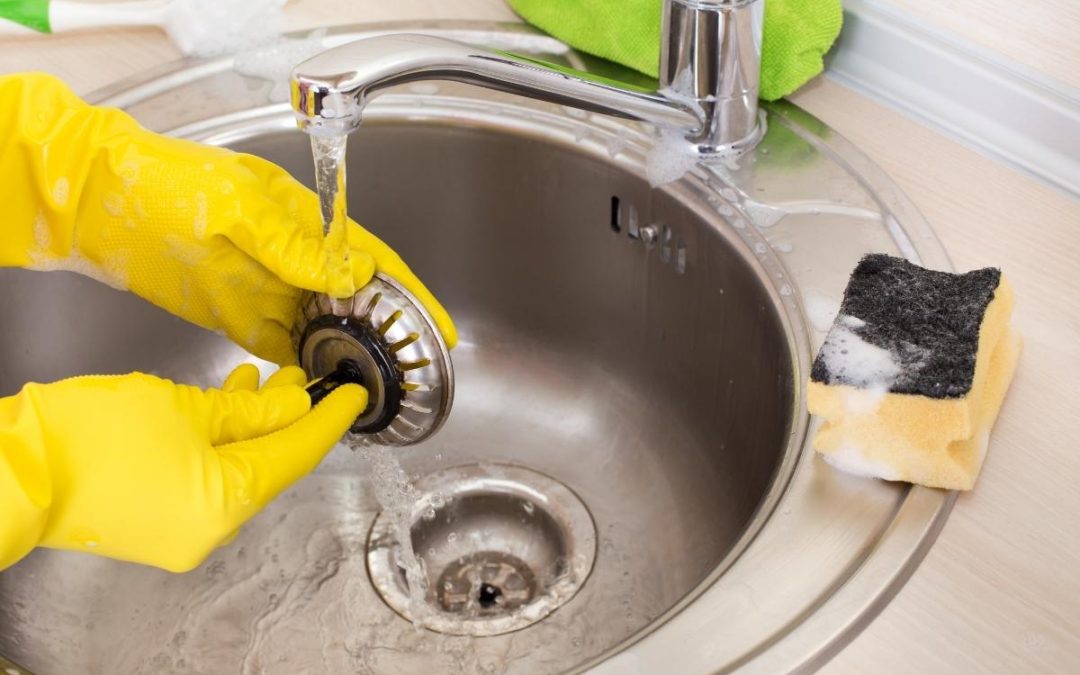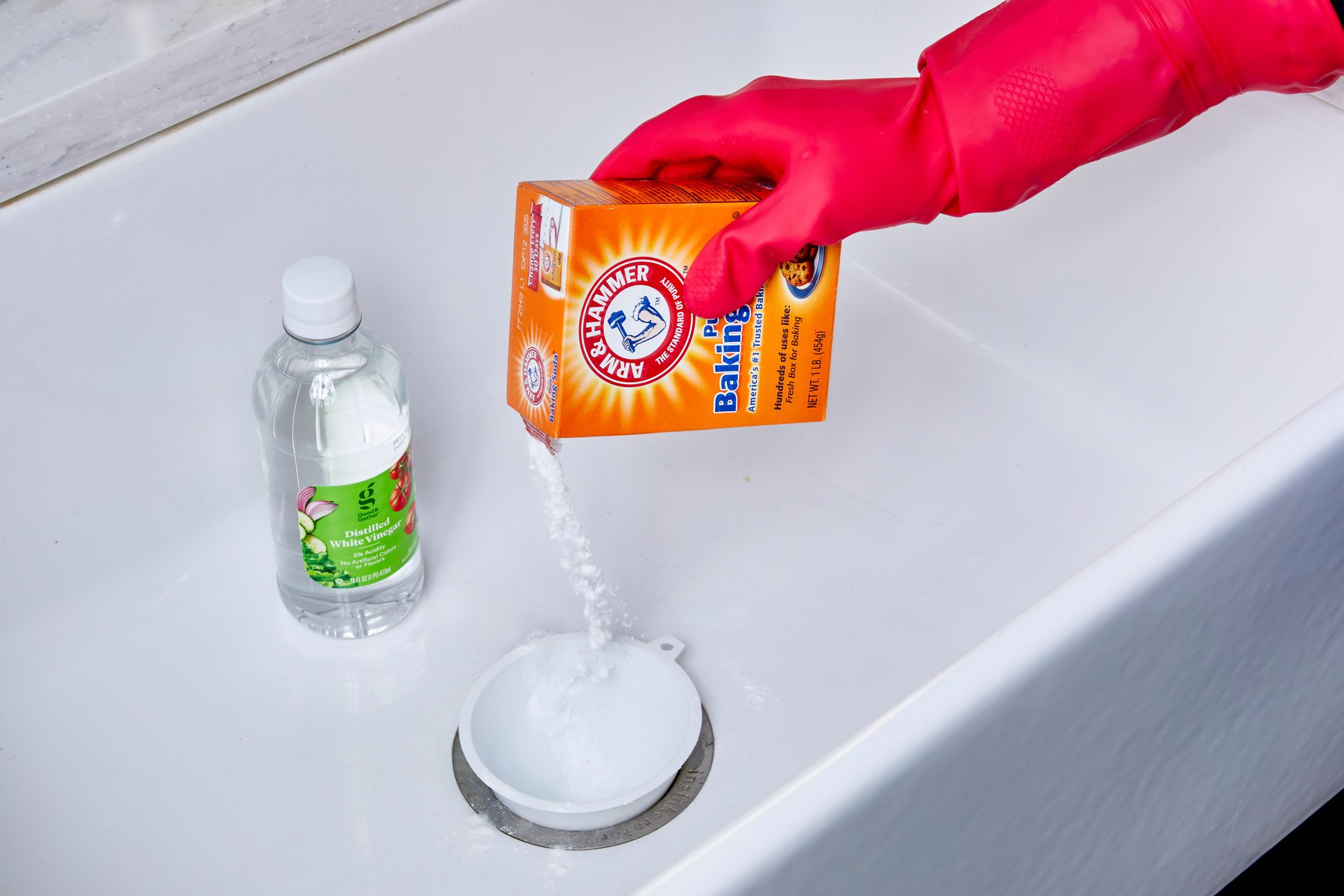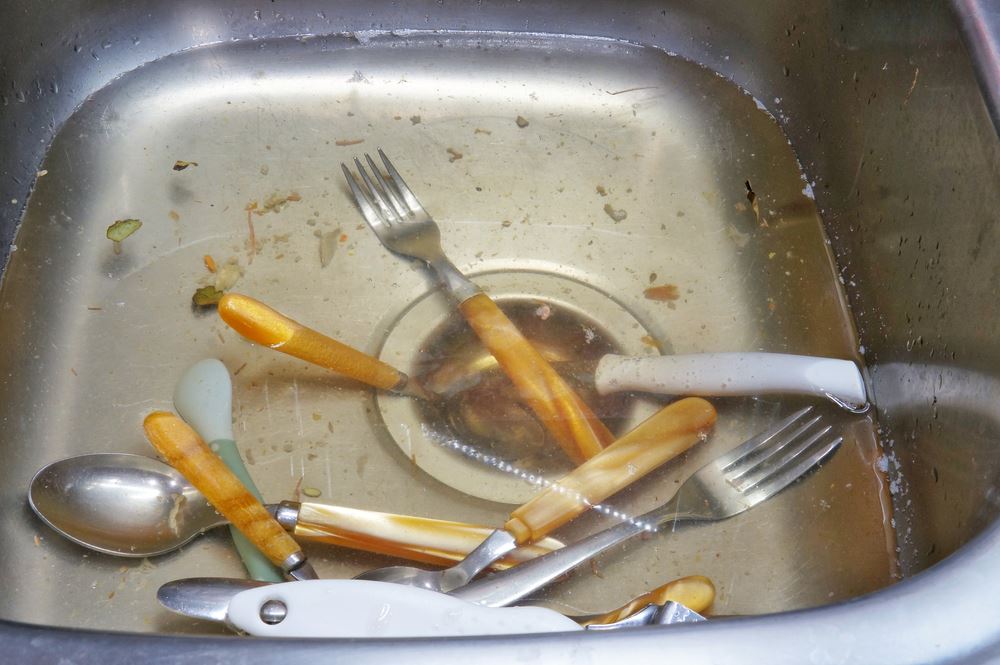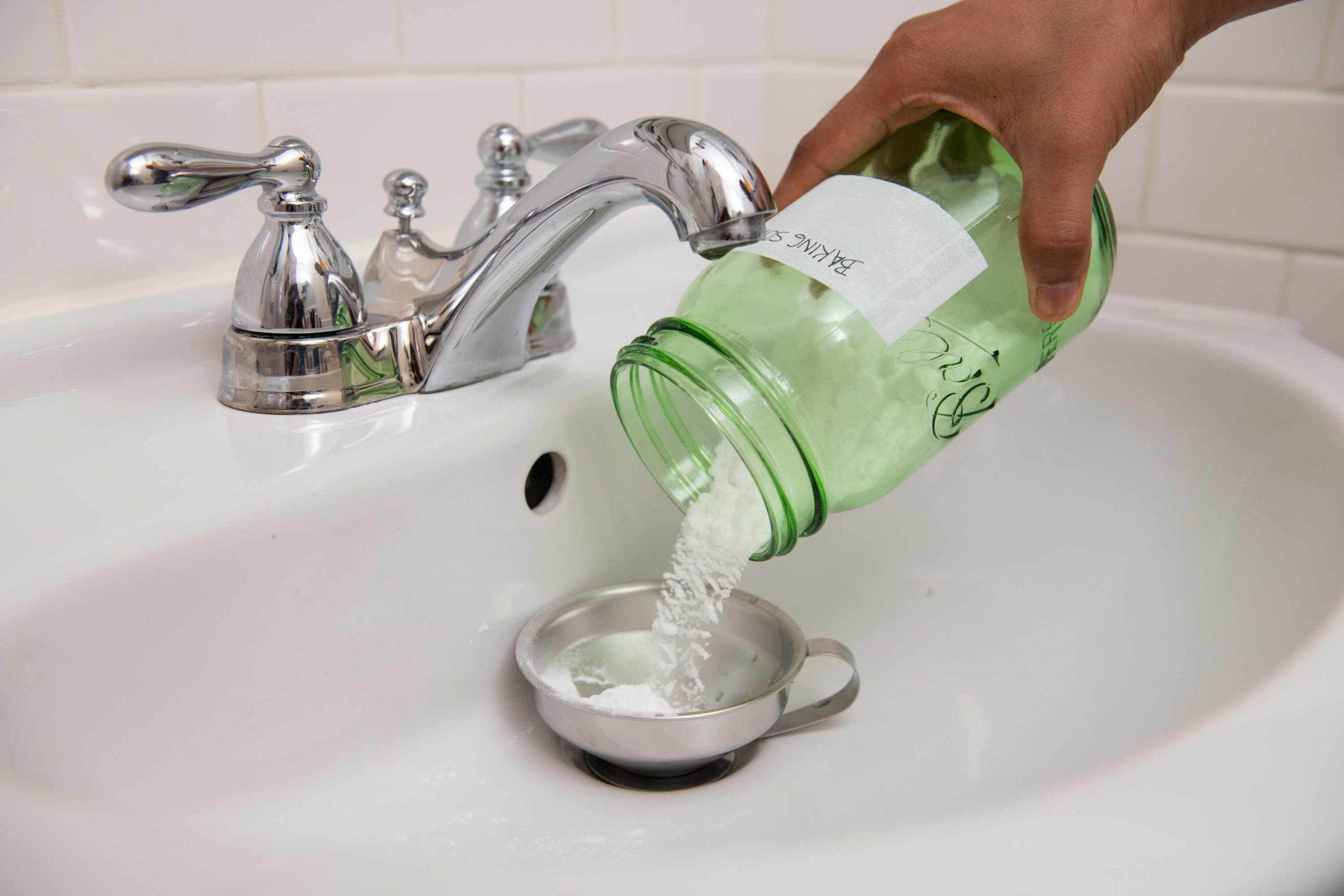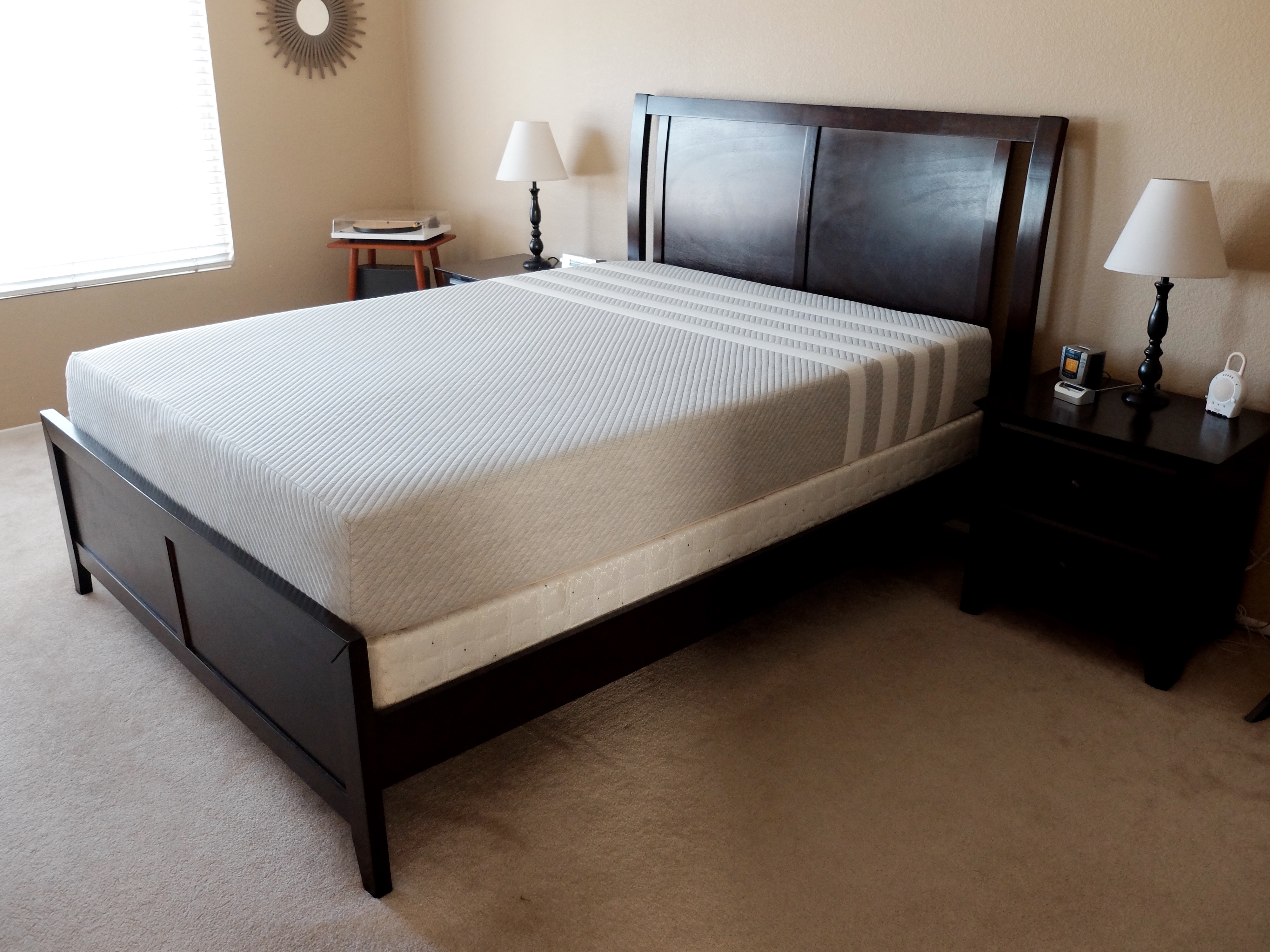If your kitchen sink is not draining fast enough, it can be a frustrating and messy problem to deal with. But before you call a plumber and spend a fortune on professional help, try these simple and effective methods to unclog your kitchen sink and get it draining properly again.Unclog a Kitchen Sink
A slow-draining kitchen sink can be caused by a variety of factors, such as food particles, grease buildup, or even a blockage in the main drain line. Here are some easy steps you can take to fix a slow-draining kitchen sink:How to Fix a Slow-Draining Kitchen Sink
1. Boiling water: This is the simplest and cheapest method to try first. Boil a pot of water and carefully pour it down the drain. The heat can help melt any grease or food particles that may be causing the clog. 2. Baking soda and vinegar: Mix equal parts of baking soda and vinegar and pour it down the drain. Let it sit for 15 minutes, then pour boiling water down the drain to flush out the mixture and any loosened debris. 3. Plunger: Use a plunger specifically designed for sinks, and create a seal around the drain. Pump the plunger several times to create suction and dislodge the clog. 4. Snake/auger: A plumbing snake or auger can be inserted into the drain to break up and remove the clog. This method may be more effective for tougher clogs, but it can also potentially damage your pipes if not used correctly. 5. Chemical drain cleaners: While they may seem like an easy fix, chemical drain cleaners can be harsh and damaging to your pipes. Use them sparingly and always follow the instructions carefully.5 Ways to Unclog a Kitchen Sink
There are several reasons why your kitchen sink may be draining slowly: Food particles: Small food particles can easily get caught in your drain and build up over time, causing a clog. Grease/fat buildup: Pouring hot grease or fat down the drain can cause it to solidify and create a blockage in your pipes. Foreign objects: Accidentally dropping items down the drain, such as utensils or jewelry, can cause a blockage in your pipes. Old pipes: Over time, older pipes can become corroded and accumulate debris, leading to slow draining.Why is My Kitchen Sink Draining Slowly?
If your kitchen sink is completely clogged and not draining at all, you may need to take more drastic measures to clear the blockage. Here are some steps you can take to unclog a severely clogged kitchen sink drain: 1. Remove standing water: Use a cup or bucket to remove any standing water in the sink and dispose of it in a separate drain or outside. 2. Remove the trap: Underneath the sink, there is a U-shaped pipe called the trap. Place a bucket underneath to catch any water and unscrew the trap, allowing you to remove any debris or blockages. 3. Use a plumbing snake/auger: Insert the snake or auger into the drain and twist it to break up and remove the clog. 4. Reattach the trap and run hot water: Once the clog is removed, reattach the trap and run hot water down the drain to flush out any remaining debris.How to Clear a Clogged Kitchen Sink Drain
If your kitchen sink is not draining at all, it may be a sign of a more serious problem. In this case, it's best to call a professional plumber to assess and fix the issue. They may need to use specialized tools and equipment, such as a hydro jet, to clear out the blockage and get your sink draining properly again.Kitchen Sink Not Draining? Here's What to Do
To prevent your kitchen sink from draining slowly in the future, here are some tips to keep it running smoothly: Proper disposal of food: Avoid putting large food scraps, grease, and fat down the drain. Instead, dispose of them in the garbage or compost. Use a drain cover: A drain cover can catch any small food particles and prevent them from going down the drain. Regular cleaning: Use a combination of baking soda and vinegar or a store-bought drain cleaner to regularly clean your sink and keep it free of buildup.How to Fix a Slow Kitchen Sink Drain
If you prefer to use natural and eco-friendly methods to unclog your kitchen sink, here are some DIY solutions you can try: Baking soda and lemon juice: Mix 1/4 cup of baking soda with 1/4 cup of lemon juice and pour it down the drain. Let it sit for 30 minutes, then pour boiling water down the drain to flush it out. Salt and hot water: Pour 1/2 cup of salt down the drain, followed by boiling water. Let it sit for a few minutes, then run hot water down the drain to clear any remaining debris. Baking soda and salt: Mix equal parts of baking soda and salt and pour it down the drain. Let it sit for 20 minutes, then pour boiling water down the drain to flush it out.DIY Solutions for a Slow-Draining Kitchen Sink
There are a few common causes for a slow-draining kitchen sink: Clogged pipes: The most common cause of a slow-draining kitchen sink is a clogged pipe. This can be caused by food particles, grease buildup, or foreign objects. Bad installation: If your sink was not installed properly, it may be causing problems with the drainage system. Old pipes: As mentioned before, older pipes can become corroded and accumulate debris, leading to slow draining.What Causes a Kitchen Sink to Drain Slowly?
This method is not only effective, but also environmentally friendly. Here's how to unclog a kitchen sink with baking soda and vinegar: 1. Pour boiling water down the drain: This will help soften and loosen any debris or buildup in the drain. 2. Mix equal parts of baking soda and vinegar: Pour the mixture down the drain and let it sit for 15 minutes. 3. Pour boiling water down the drain again: This will flush out the mixture and any loosened debris. 4. Repeat if necessary: For tougher clogs, you may need to repeat this process a few times to completely clear the drain. With these tips and methods, you can easily unclog a slow-draining kitchen sink and prevent future clogs. Remember to always use caution when attempting to fix plumbing issues and don't hesitate to call a professional if the problem persists or becomes too difficult to handle on your own.How to Unclog a Kitchen Sink with Baking Soda and Vinegar
The Importance of Proper Drainage in Kitchen Design
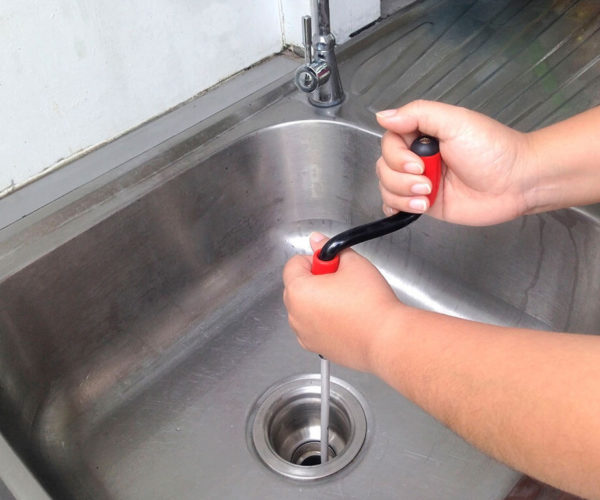
Why a Slow-Draining Kitchen Sink is a Major Issue
 When it comes to designing a kitchen, one of the most important aspects to consider is the drainage system. A properly functioning drainage system is essential for maintaining a clean and functional kitchen. However, if your kitchen sink is not draining fast enough, it can quickly become a major issue that affects your daily routine and overall kitchen design.
Slow drainage in a kitchen sink can be caused by a variety of factors:
from food debris and grease buildup to clogged pipes and poor plumbing installation. Regardless of the cause, it is crucial to address the issue promptly to prevent further damage and inconvenience.
When it comes to designing a kitchen, one of the most important aspects to consider is the drainage system. A properly functioning drainage system is essential for maintaining a clean and functional kitchen. However, if your kitchen sink is not draining fast enough, it can quickly become a major issue that affects your daily routine and overall kitchen design.
Slow drainage in a kitchen sink can be caused by a variety of factors:
from food debris and grease buildup to clogged pipes and poor plumbing installation. Regardless of the cause, it is crucial to address the issue promptly to prevent further damage and inconvenience.
The Effects of a Slow-Draining Kitchen Sink
 A slow-draining kitchen sink can have a significant impact on your kitchen design and overall home functionality. For starters, it can lead to unpleasant odors and attract pests, compromising the cleanliness and hygiene of your kitchen. It can also cause water pooling in your sink, making it difficult to use and resulting in potential water damage to your cabinets and countertops.
Moreover, a slow-draining kitchen sink can also affect the efficiency of your daily tasks. From washing dishes and preparing meals to cleaning and disposing of food waste, a slow drain can significantly slow down these essential activities and disrupt your daily routine.
A slow-draining kitchen sink can have a significant impact on your kitchen design and overall home functionality. For starters, it can lead to unpleasant odors and attract pests, compromising the cleanliness and hygiene of your kitchen. It can also cause water pooling in your sink, making it difficult to use and resulting in potential water damage to your cabinets and countertops.
Moreover, a slow-draining kitchen sink can also affect the efficiency of your daily tasks. From washing dishes and preparing meals to cleaning and disposing of food waste, a slow drain can significantly slow down these essential activities and disrupt your daily routine.
Addressing the Issue and Improving Drainage in Your Kitchen Sink
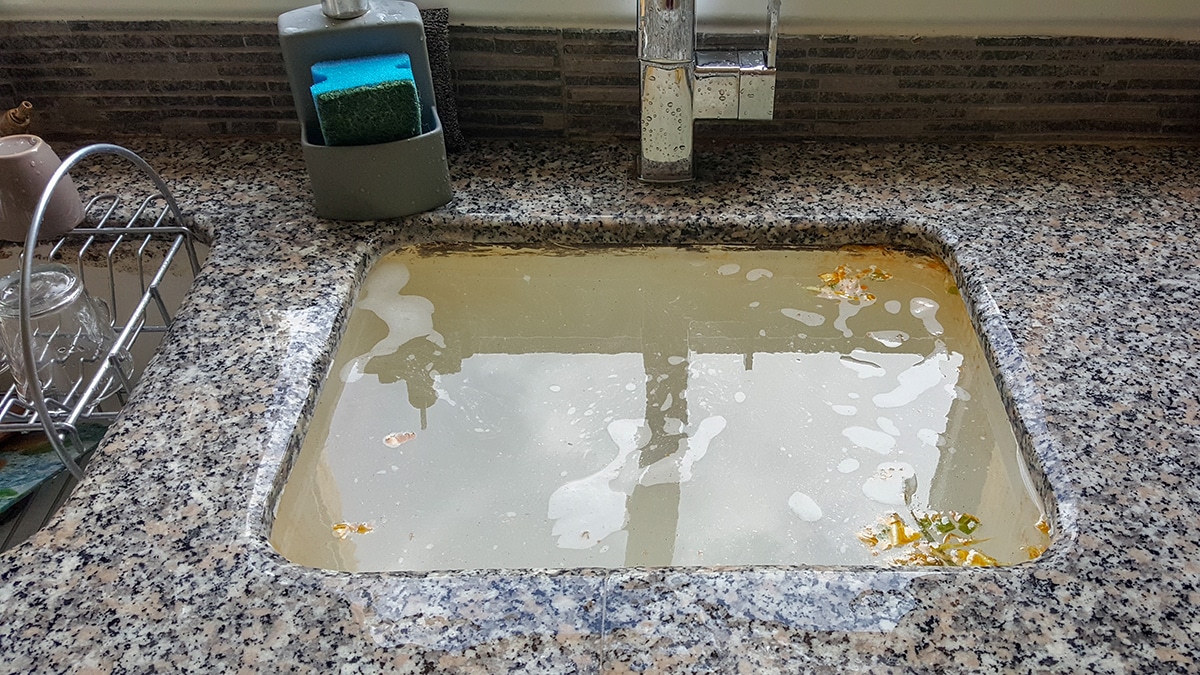 To avoid the consequences of a slow-draining kitchen sink, it is crucial to address the issue as soon as possible. Start by using a plunger or a drain snake to clear any clogs and remove debris from the drain. If the problem persists, you may need to call a professional plumber to inspect and repair any underlying issues with your drainage system.
In addition to fixing the problem, it is also essential to take preventive measures to maintain proper drainage in your kitchen sink. This includes regularly cleaning and maintaining your sink, avoiding pouring grease and food waste down the drain, and ensuring proper installation of your plumbing system.
In conclusion, a slow-draining kitchen sink is not just a minor inconvenience, but a significant issue that can affect the overall design and functionality of your kitchen. By addressing the problem promptly and taking preventive measures, you can ensure proper drainage and maintain a clean and functional kitchen for years to come.
To avoid the consequences of a slow-draining kitchen sink, it is crucial to address the issue as soon as possible. Start by using a plunger or a drain snake to clear any clogs and remove debris from the drain. If the problem persists, you may need to call a professional plumber to inspect and repair any underlying issues with your drainage system.
In addition to fixing the problem, it is also essential to take preventive measures to maintain proper drainage in your kitchen sink. This includes regularly cleaning and maintaining your sink, avoiding pouring grease and food waste down the drain, and ensuring proper installation of your plumbing system.
In conclusion, a slow-draining kitchen sink is not just a minor inconvenience, but a significant issue that can affect the overall design and functionality of your kitchen. By addressing the problem promptly and taking preventive measures, you can ensure proper drainage and maintain a clean and functional kitchen for years to come.
/plumber-unclogging-kitchen-sink-169270382-5797a9355f9b58461f27f024.jpg)

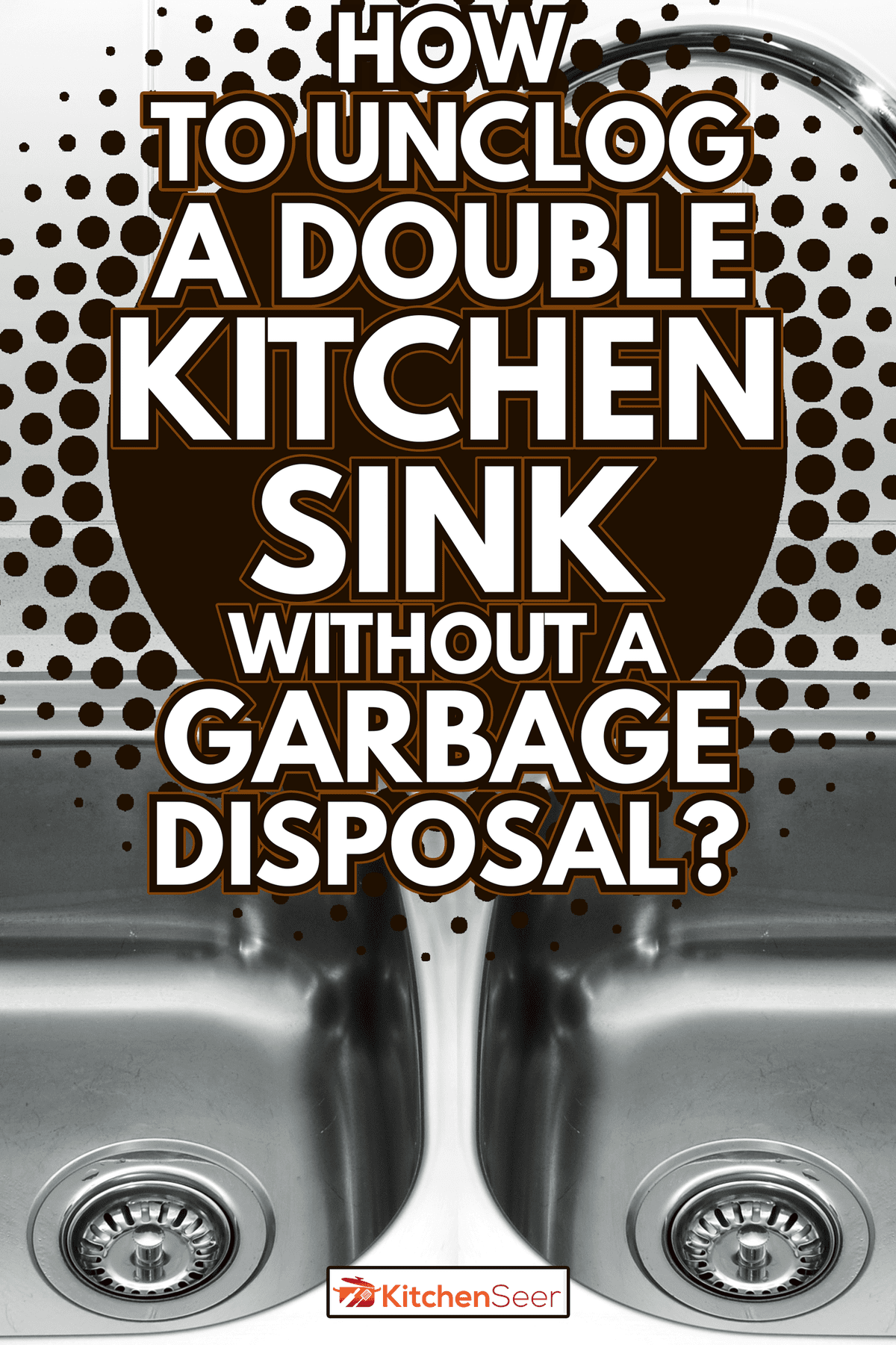


:max_bytes(150000):strip_icc()/how-to-unclog-a-kitchen-sink-2718799_sketch_FINAL-8c5caa805a69493ab22dfb537c72a1b7.png)




















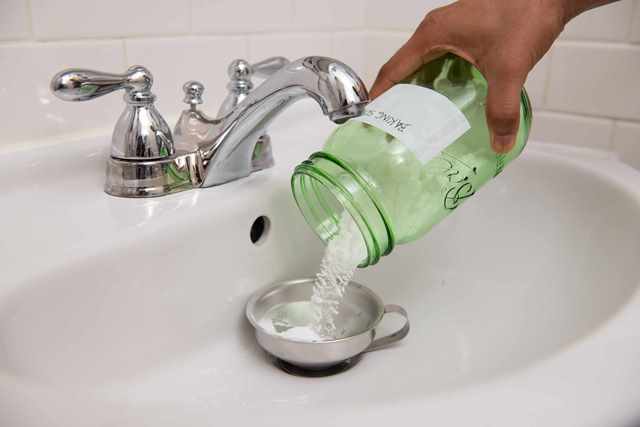
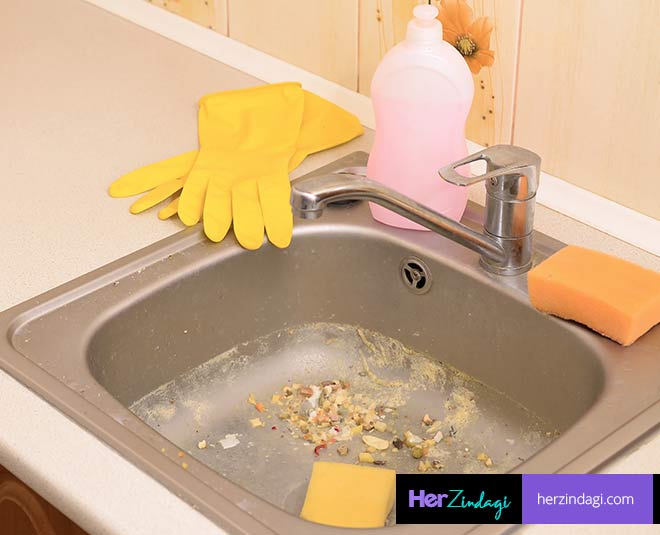





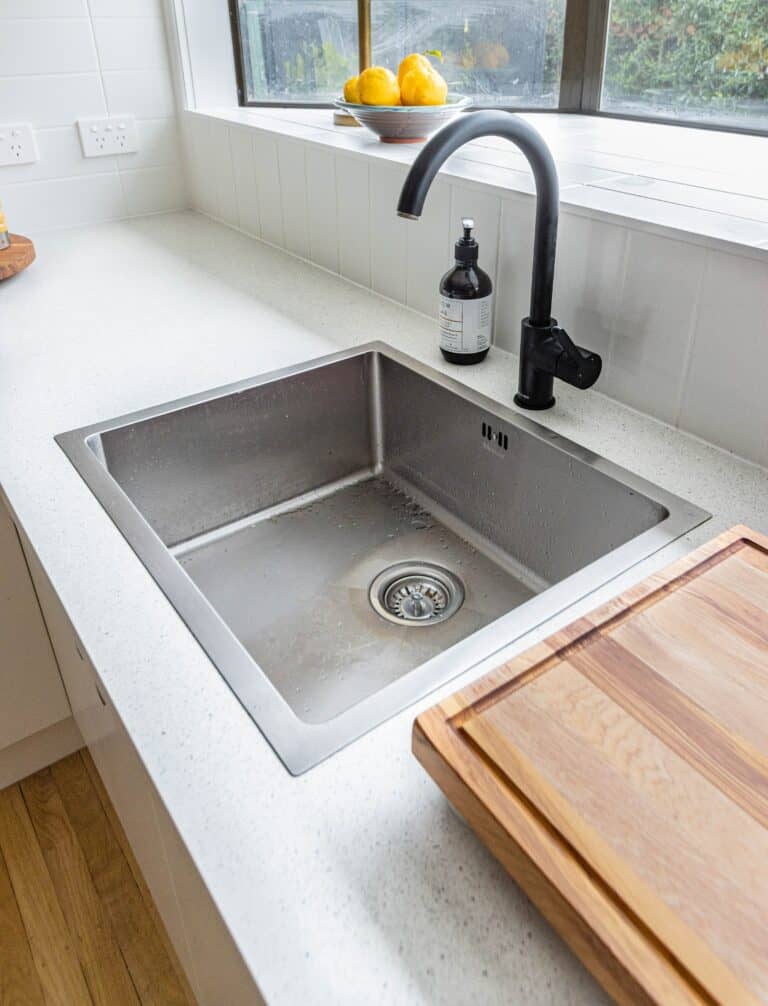




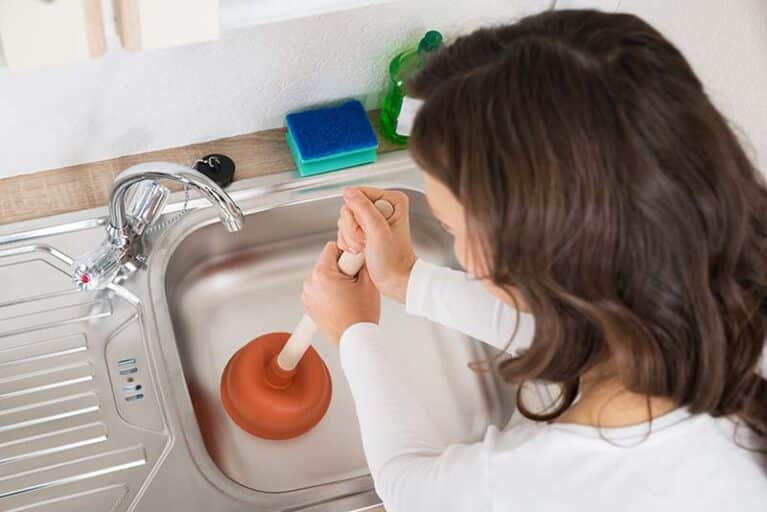

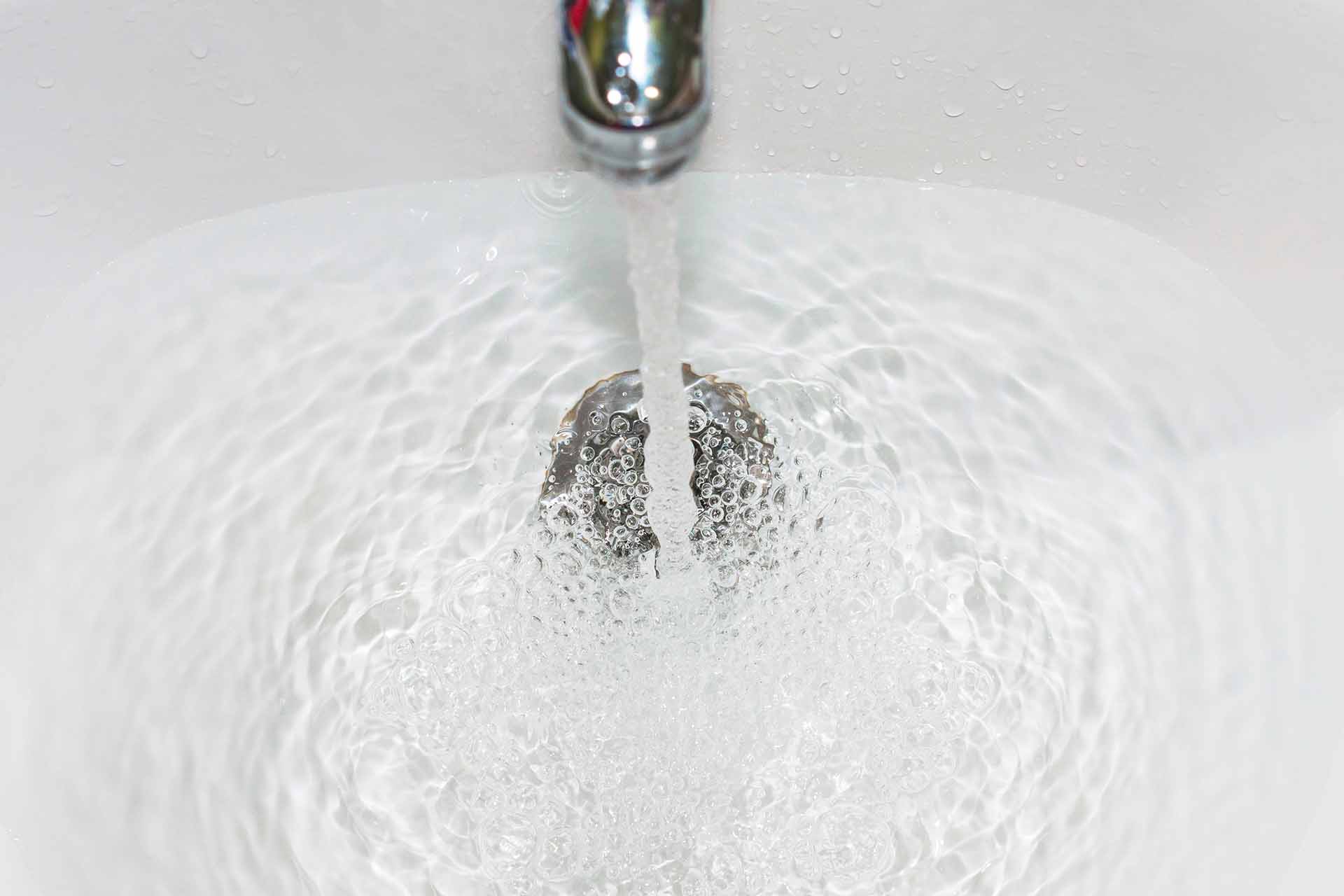

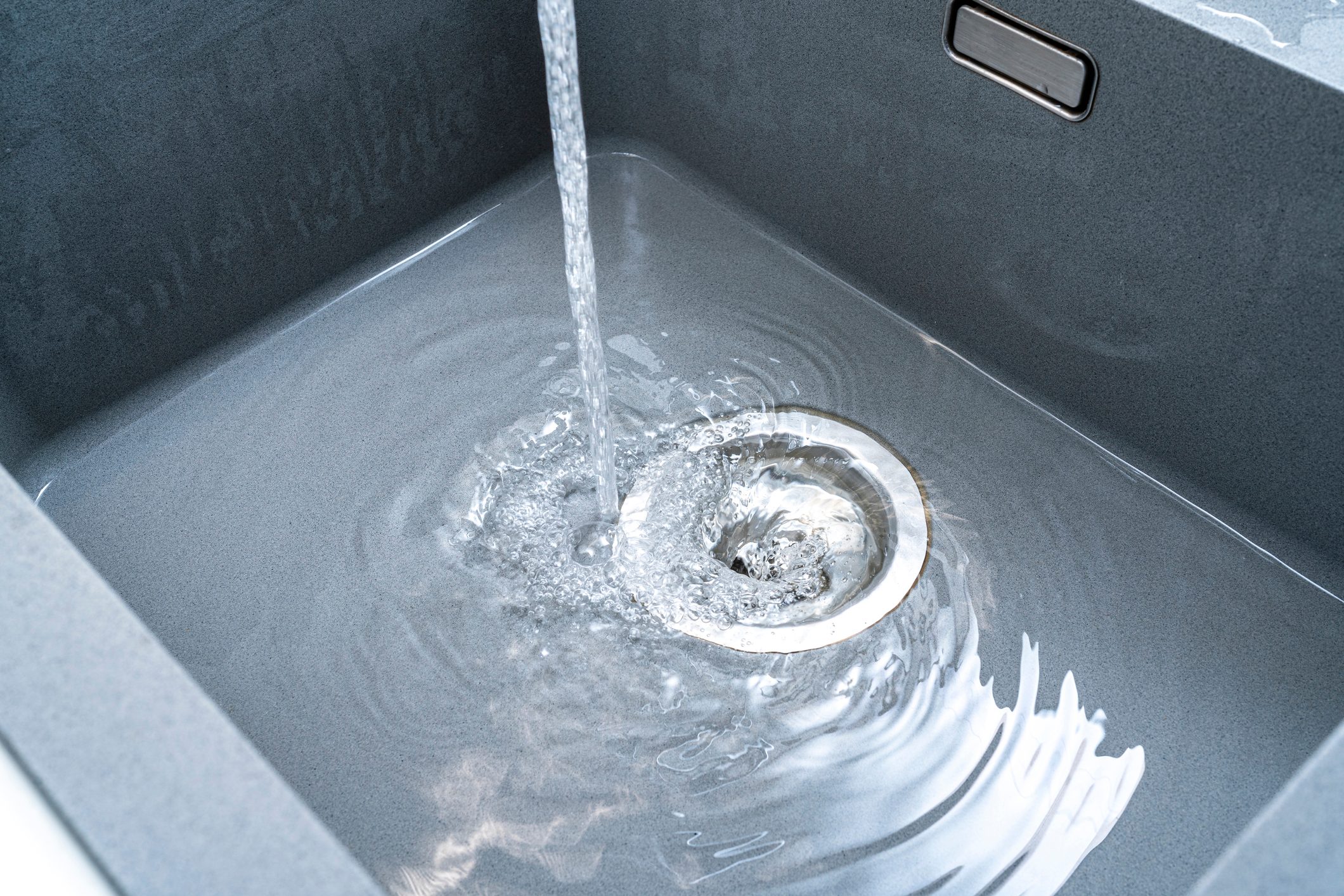








:max_bytes(150000):strip_icc()/freshen-and-unclog-drain-with-baking-soda-1900466-22-bbf940b70afa4d5abef0c54da23b1d3f.jpg)








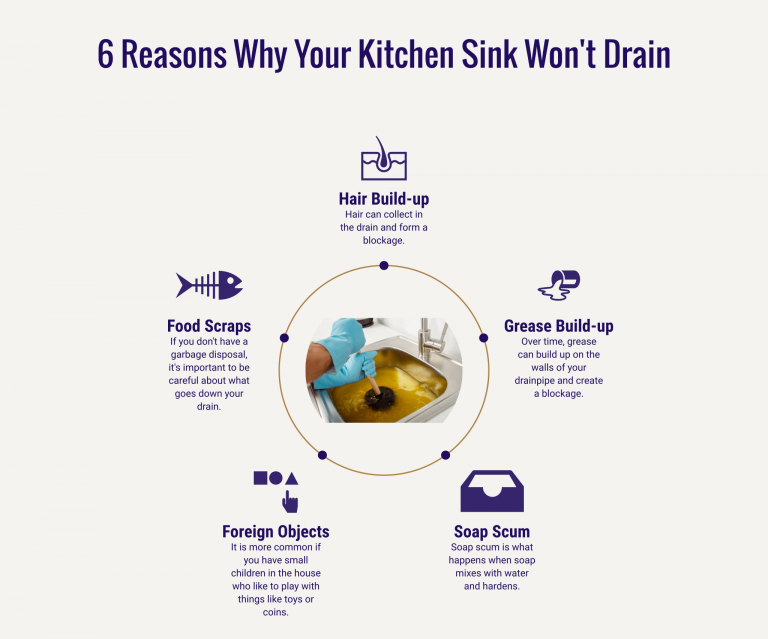

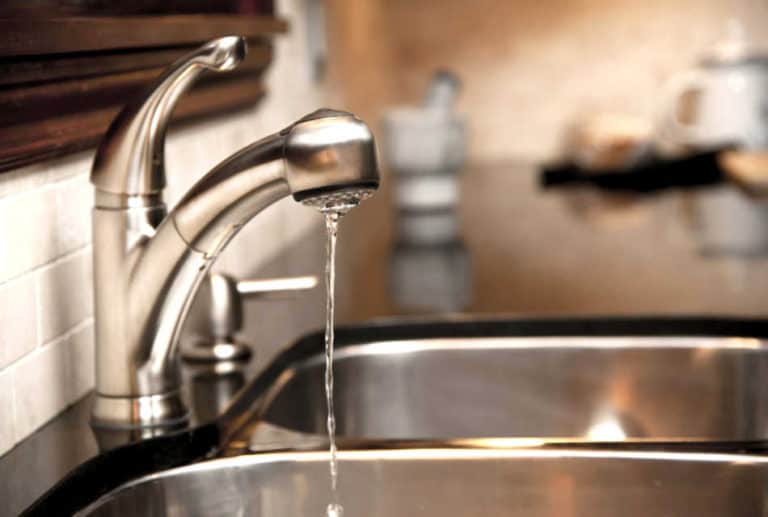





:max_bytes(150000):strip_icc()/Five-Ways-to-Fix-a-Slow-Sink-Drain-05-a5fceccbd5a64b1b8730ee1e24b81b4f.jpg)
